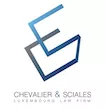Administrative Tribunal, 26 July 2023, n. 46.269
A Luxembourg resident taxpayer granted a licence to a Luxembourg company in which he was a shareholder and director, for the use of his patents in exchange for a licensing fee. This fee was composed of four types of royalties to be paid by the latter. These royalties include:
(i) An initial fixed unique fee upon contract signing.
(ii) A variable fee based on the licensee's direct use of the patents.
(iii) A variable fee on sublicenses granted by the licensee.
(iv) Optionally, an annual minimum guaranteed fee in case the variable fee related to the direct or indirect exploitation of the patents by the licensee falls below this amount.
The tax authorities denied the partial tax exemption of related income arising from the use of the patents, on the grounds that:
(i) They considered that the payments made by the licensee to the taxpayer did not qualify as "royalty" for the purposes of Article 50bis LITL, based on Article 12 §2 OECD Model Convention.
(ii) Some of the fees were not linked to the use of the patent; and
(iii) Some of the fees were not at arm's length.
Court's opinion
The determining factor for whether payments qualify as royalties for the purpose of Luxembourg IP box rules is the direct link they have to the utilisation of the corresponding intellectual property rights, irrespective of their frequency or recurrence. This implies that even one-time payments can be categorised as eligible royalties according to Article 50bis LITL, as long as they are directly related to the granted or non-granted use of an eligible intellectual property right.
The Court also stated that any transfer pricing issue in relation to the amount of the royalties only concerns the taxation of the licensee and is unrelated to the personal tax situation of the licensor regarding the application of the tax regime provided by Article 50bis LITL to the royalties received by the latter. Even in the event of excessive payments made in accordance with the licensing contract, this circumstance cannot automatically render the inapplicability of the said tax regime to the licensor.
Should you have any inquiries or require expert guidance pertaining to the information provided, our tax team is available to assist you. Please feel free to contact us.
The content of this article is intended to provide a general guide to the subject matter. Specialist advice should be sought about your specific circumstances.
